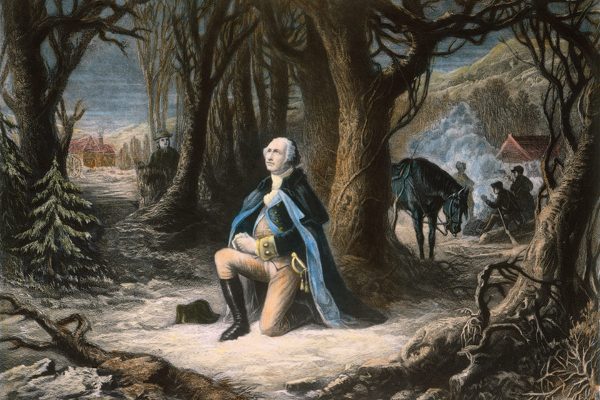Digital conditions, not competing intellectuals, will make it so.
An Oath upon Oaths

On oaths and their moral focus.
The Politics is said to be the only work in which Aristotle swore with an oath. That was taken as a sign of the fact that political life is indeed a heated life, triggering the strongest passions about the things that are just and unjust. But the jousting over an “oath to the Constitution” currently lighting up our screens has been a venture in misplaced cleverness.
It’s worked to divert us from the most serious questions raised by the argument over Adrian Vermeule’s essay on Originalism. Both sides of that argument face a challenge: What, finally, does Originalism—or Adrian Vermeule’s perspective—give us to guide and govern our judgments on the gravest issues that are vexing our laws and public life right now?
Those issues involve the question who those “human persons” are who come within the protection of the law in abortion and other cases; the radiating claims of same-sex marriage; and transgenderism, the ultimate claim to liberate sexuality from “nature” and from “truth.”
I wish to say something about this matter of the oath, but I would first just note that this argument is curiously raging while we are only weeks away from a decision in the Supreme Court on transgenderism, a decision that could deal a crippling challenge to the very meaning and coherence of Originalism.
That decision, if it comes, may bring home to us forcefully that some of us can spend our lives teaching the deep principles of the American Founding and yet find ourselves at odds with the truncated view of law and the founding that has been offered to us glibly under the banner of Originalism.
My concern, again, is that the argument over the oath has been a stylish “changing of the subject.” That sense of a distraction at work is sustained by the fact that the argument has lingered in the cloud of abstraction. We have been putting off the question of what difference it would make for our jurisprudence if we were to judge Originalism against the alternative that Adrian Vermeule would offer.
We could have been brought down out of the clouds if anyone had sought to show how this matter of the oath bore on any question of consequence agitating our law right now. Once again, the example of Lincoln could have delivered people on both sides from the perplexities that may afflict them here. Let me draw two lessons from Lincoln on this matter of oaths.
Lincoln’s Oath
The first lesson comes from Russell Hittinger’s telling point: Lincoln could not have taken the oath to the Constitution on March 4, 1861 if the rights proclaimed by the Supreme Court in the Dred Scott case were to be regarded as though they were woven into the text of the Constitution itself as part of the supreme law of the land.
The most critical right articulated by Chief Justice Taney in that case was a right not be dispossessed of one’s property in a slave when one entered a Territory of the United States. Lincoln had just led a nationwide movement to counter and overturn that decision. And that is what he proceeded to do with administrative decisions and with legislation well short of a constitutional amendment.
Hittinger’s point here is not merely telling, but anchoring: the oath is to the Constitution, not to anyone’s interpretation of the Constitution. Nor is it an oath of fealty to judgments rendered with the ring of authority by officials acting under the authority of the laws and the Constitution.
Some of our friends making earnest arguments about the oath to the Constitution do not seem to be rising to Lincoln’s somber recognition here: He may have had to bite his lip, but he had sound reasons to take an oath to a Constitution that incorporated what he understood as an unalloyed evil.
As he understood, slavery offered the most radical denial of the moral premises that underlie a government based on the “consent of the governed.” As Lincoln remarked, to deny a man the right to govern himself is the clearest instance of denying governance by the consent of the governed.
Lincoln and the Fugitive Slave Clause
But as Lincoln also said, the Fugitive Slave Clause was “nominated in the bond”: It was a concession that had to be made if there was any way to overcome the divisions that stood in the way of the Union. As Lincoln understood, this was one of those classic cases in which statesmen at times are compelled to make accommodations for an evil for the sake of compressing that evil and securing a larger good.
The constitution afforded certain protections to slavery, but it brought slavery within a constitutional framework that withheld any moral endorsement of the institution, while hedging it in with limitations and restraints. The term “slave” would never be used, never sully the text.
Instead, as Lincoln noted, only “covert” terms would be used—as in the Fugitive Slave Clause itself, which referred to a “Person held to Service or Labour in one State, under the Laws thereof, escaping into another.” Not only covert language but a deeper lesson: that slavery could be sustained rightly only under the positive laws of any State.
Even judges from the South recognized that where the positive law was silent, the natural law had to govern, and that slavery was incompatible with the natural law. Looking back years later, even Frederick Douglass would come to agree that the founders had made the right call: bringing slavery under the limitations of the Constitution offered the best way of containing the expansion of slavery and lay the ground for its gradual extinction.
But on that matter of the Fugitive Slave Clause Lincoln offered something deeper—and more elegant. In his famous Peoria Speech (1854), Lincoln said that he would give the owners of slaves “any legislation for the reclaiming of their fugitives, which should not, in its stringency, be more likely to carry a free man into slavery, than our ordinary criminal laws are to hang an innocent one.” And later, in his Inaugural Address, he asked: “ought not all the safeguards of liberty known in civilized and human jurisprudence to be introduced, so that a free man be not, in any case surrendered as a slave?”
In a criminal trial, we presume in favor of the innocence of the accused and put the burden of proof on those would hold him guilty and rightfully subject to punishment. And now Lincoln was saying that, in administering the Fugitive Slave Law, we have a choice of where to place the operating presumptions: Do we presume that any black man running free in the North is a runaway slave, and assign him the burden of proving his freedom? Or do we assume that this black man—like any other man—is presumptively a free man? In that case the burden would fall to those who would return him to slavery.
What Lincoln did here was reach outside the text of the Constitution and read the Constitution in the light of the Declaration of Independence—i.e., he read it with the premise that human beings, by nature, are presumptively free. Now, we may ask in the light of our recent arguments here: Was he violating his oath to the Constitution when he held forth that understanding?
Anchoring Meaning
It seems to me that the central vice of some of the people making the argument over oaths is this: they find it hard to recognize that the understanding of the Constitution may depend on our ability to reach back to those principles of law that were there before the Constitution, the principles that the framers drew upon as they shaped the structure of the Constitution.
James Wilson and Oliver Ellsworth did not think it was necessary to mention the principle on ex post facto laws, for it seemed to them so obvious that any lawyer had to know it. But there were many other things taken for granted, and at times it becomes necessary to reach back to those understandings as we try apply the Constitution sensibly to the cases arising in our law.
The late Eugene Rostow (the Sterling professor of law at Yale) used to point out the spectacle of Hamilton and Madison arguing in the Helvidius and Pacificus papers. They were arguing about the rightful roles of Congress and the president in governing foreign affairs. Both men played key roles in the Constitutional Convention, and the two of them wrote the bulk of the Federalist.
If any of the framers could be consulted as authoritative sources on the true meaning of the Constitution, it would be hard to find a rival to these two men. And yet here they were, sharply at odds over the meaning of the Constitution on this critical matter. Could either be accused of violating an oath to the Constitution as he pressed his views?
The argument between them—as with any argument—makes no sense unless we assume that there are right and wrong answers: that we have access to canons of reason, standards of judgment that would allow us to assess the validity, the persuasiveness, of the arguments being advanced.
And so consider: the argument must presuppose that there are right and wrong answers to a critical question about the Constitution, a question that cannot strictly be answered by the text of the Constitution itself. The meaning of the Constitution will require an appeal to reasons, and canons of reason, that are not contained in the text. To what meaning of the Constitution would Hamilton and Madison have taken their oaths?
The problem may bring back that scene recalled by Sanford Levinson about 20 years ago: Visitors to Liberty Hall in Philadelphia were asked whether or not they would have signed that text of the Constitution that came out of the Convention there in 1787—the Constitution without the 13th, 14th, 15th, and 19th amendments; the Constitution that did not deliver black people from slavery or confer citizenship and voting rights on those black people; the Constitution that only later confirmed the right of women to vote.
Many visitors were taken aback by the question, and paused for a moment in a serious quandary. As Levinson observed, the matter hinged on whether one recognized, behind that original text, the deeper principles that animated this project in popular and constitutional government and offered some reason to believe that those rights would in time be unfolded. One wonders whether we would not be led back to the same anchoring ground as we argue today over the point of the oath.
I would circle back, at the end, to Adrian Vermeule, with one last example: Lyman Trumbull had to assure his colleagues that nothing in the proposed 14th Amendment would threaten those laws in Illinois, as well as Virginia, that barred marriage across racial lines. And we know that the Amendment wouldn’t have had a ghost of a chance in passing if he couldn’t offer that assurance.
But now we are inclined to say that Trumbull just didn’t understand the implications of his own principles. And indeed the life of moral experience often means discovering, later in life, the implications of our own principles that have hitherto gone unnoticed or unrecognized.
But let us suppose that, before the later recognitions kicked in, Adrian Vermeule had been duly informed about this “original” understanding of the 14th Amendment. And let us suppose now that he took an oath to the Constitution, in which he understood the 14th amendment as “corrected” by a fuller understanding of the principle behind the Amendment—the principle that Lyman Trumbull had not fully grasped at the time, about the wrongness of barring interracial marriage.
Could Vermeule really have been accused of taking his oath to the Constitution while being faithless to its text? Or that he was not honoring the original understanding of the men who had drafted and voted for it?
This is a point on which Chris Green, I think, fell into a mistake: In weighing the oath here, Vermeule would not be invoking merely his “individual mental state.” He would be invoking his understanding of the objective meaning of the Constitution when it was understood in a manner coherent with its own deepest principles.
Fiddling Originalism
Leo Strauss famously accused certain positivists of his day of fiddling while Rome was burning, an offense excused, as he said, by the possibility that they were neither aware that they were fiddling nor that Rome was burning.
We are having this interesting back-and-forth about the oath while we are only about six weeks away from a critical decision of the Supreme Court on transgenderism. Some savvy watchers of the Court, not given to conjectures and panic, have found reason nevertheless to worry that one of the two new originalist members of the Court may come down on the side of transgenderism. If that were done, the decision would give us the equivalent of Roe v. Wade, with seismic effects on our laws and culture.
It is hardly a point of consolation that, if that happens, we will find a bloc of Originalists happily celebrating this expansion of personal freedom, as they have celebrated the advent of same-sex marriage and the right to abortion.
Some may be beamish enough to claim this as a triumph: that these principles of Originalism, so favored now by conservatives, have the happy quality of being “neutral” on the most contentious issues of day. We are all Federalists! We are all Originalists! And we can come together with such civility precisely because the principles that summon our highest loyalties have nothing emphatic or decisive to say about the gravest moral questions in our law and politics.
But others of us will be compelled to say that what others celebrate as “neutrality,” we would name more plainly as moral emptiness. And if this is what conservative jurisprudence tries to celebrate with a brave face, it simply exposes itself, in Matthew Peterson’s winged phrase, as a jurisprudence and “antipolitics of ‘principled’ loserdom.”
The American Mind presents a range of perspectives. Views are writers’ own and do not necessarily represent those of The Claremont Institute.
The American Mind is a publication of the Claremont Institute, a non-profit 501(c)(3) organization, dedicated to restoring the principles of the American Founding to their rightful, preeminent authority in our national life. Interested in supporting our work? Gifts to the Claremont Institute are tax-deductible.
Liberalism Is the Politics of Fear.
More than abstraction is at stake.
"Real Originalism has never been tried..."
In its effects, it is synonymous with liberalism.
A jurisprudence for all seasons—especially ours.






